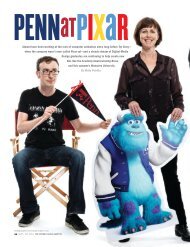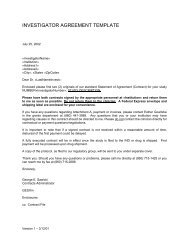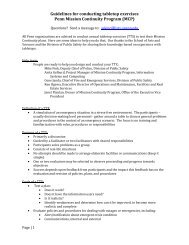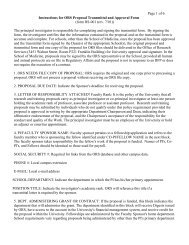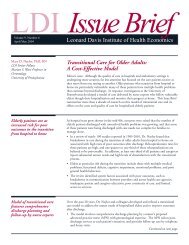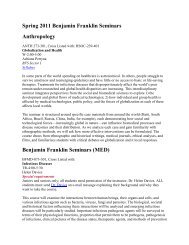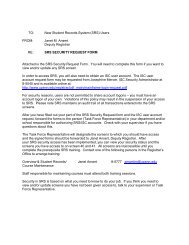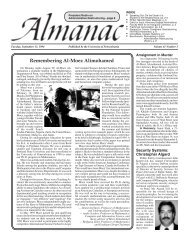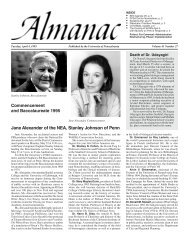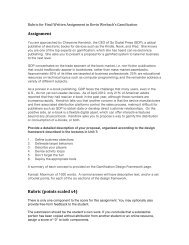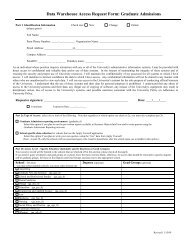PENNPRINTOUT - University of Pennsylvania
PENNPRINTOUT - University of Pennsylvania
PENNPRINTOUT - University of Pennsylvania
Create successful ePaper yourself
Turn your PDF publications into a flip-book with our unique Google optimized e-Paper software.
Technoliteracy<br />
A student’s view<br />
BY JORDANA HORN<br />
Why am I<br />
writing this?<br />
After all, I<br />
know very little about<br />
computers. I was introduced<br />
to them in fourth<br />
grade, where my classmates<br />
and I learned<br />
Apple programming<br />
intricacies like “run.”<br />
But I must confess that I<br />
developed no great love<br />
for these machines. For<br />
us never-to-be-hackers,<br />
the lessons were merely<br />
welcome diversions<br />
from grueling drills in<br />
the Dewey Decimal system—to<br />
say nothing <strong>of</strong><br />
opportunities to play the<br />
popular computer game<br />
“Oregon Trail” behind<br />
Mrs. Hardy’s back.<br />
My family bought a computer when I was in high<br />
school; we knew it better as a typewriter with a screen. I<br />
took a giant, information-age-esque step forward and<br />
learned how to save things. Oh, yeah...and we could even<br />
play “Oregon Trail” in the privacy <strong>of</strong> our own home. It<br />
was the best <strong>of</strong> all possible worlds, no doubt. In short, I<br />
have never exactly been a “techno-geek.”<br />
I didn’t expect my technoliteracy to grow in the<br />
context <strong>of</strong> a humanities-based college education. I<br />
carefully tailored myself and my interests toward becoming<br />
a poster-child for the liberal arts—English and<br />
communications major, concentration in politics and<br />
literature, Executive Editor <strong>of</strong> The Daily <strong>Pennsylvania</strong>n.<br />
Just when and where I least expected it—in an English<br />
class during my senior year at Penn—the two worlds<br />
collided. Well, they didn’t exactly collide; they bumped<br />
into each other ever so casually, as if there was nothing<br />
unusual about mixing technology and literature. In<br />
addition to our intense class discussions in our “Literature<br />
<strong>of</strong> the Holocaust” seminar, the class was encouraged to<br />
post to a listserv. That was all.<br />
I am writing this because it is clear to me that the<br />
revolution is computerized, it is here at the <strong>University</strong>, and<br />
it is time for us to get on board.<br />
Revolutions, rising voices<br />
Truth be told, I didn’t even realize Penn needed a<br />
revolution <strong>of</strong> any kind. I thought nothing <strong>of</strong> the fact that<br />
everyone was too intimidated to talk to the pr<strong>of</strong>essor in a<br />
big lecture class. Or the fact that no one ever bothered to<br />
start a conversation with classmates about the material just<br />
learned in class. Or the fact that some classes were just<br />
too big for a student’s thoughts to be heard, to be challenged,<br />
or even to matter.<br />
Intellectual dialogue does not happen nearly enough at<br />
Penn. And so, from the beginning <strong>of</strong> freshman classes,<br />
there is the possibility <strong>of</strong> being lost in endless corridors <strong>of</strong><br />
complication—the huge lecture hall, the sporadic appointments<br />
with advisors, the complete separation <strong>of</strong> intellectual<br />
and social life at Penn. There is Smoke’s and there is<br />
Shakespeare, and never the two shall meet.<br />
This divide was dramatically crossed in English 293,<br />
where students’ passions and ideas were not constrained to<br />
the perimeters <strong>of</strong> Bennett Hall 127, Tuesday/Thursday,<br />
1:30-3 PM. On the listserv, the discussions raged on into<br />
the night and the early morning, demanding that we as students<br />
think, contemplate, and make our intellectual lives a<br />
relevant and ever-present part <strong>of</strong> our day-to-day schedules.<br />
In each electronic discourse, we were subjected to a far<br />
more arduous test than any exam—the test <strong>of</strong> self-expression,<br />
the ability to interact and learn from one another.<br />
We forged both personal relationships and intellectual<br />
exchanges; no longer hampered by time or constrained<br />
by coolness, we held a vigorous debate. Moreover, the<br />
debate allowed us to speak (continued on next page)<br />
APRIL 1995 3



